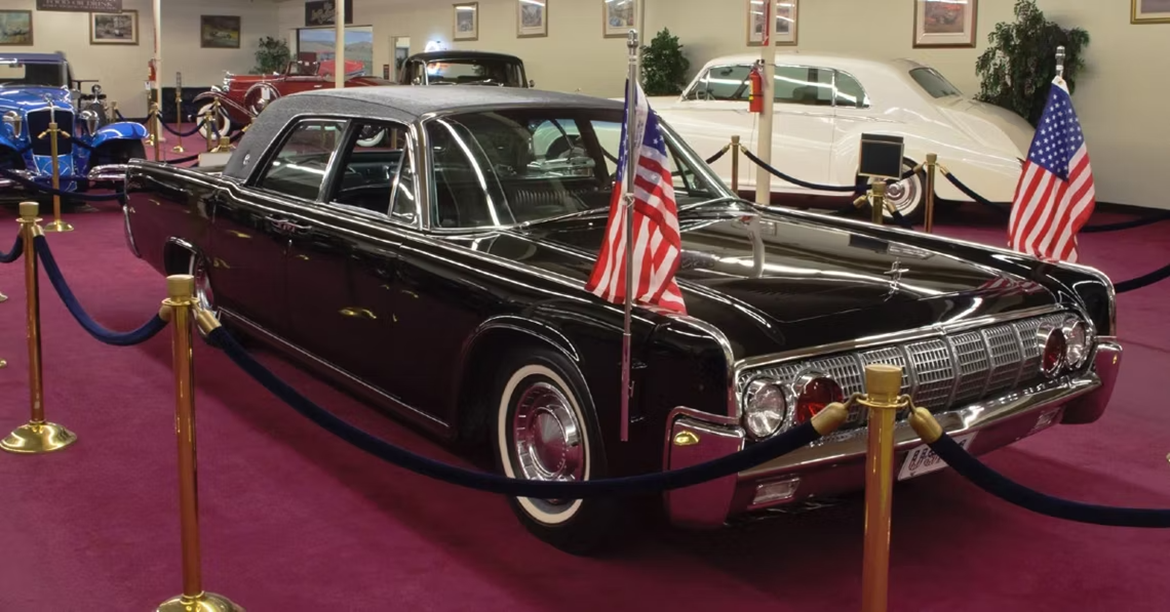When President John F. Kennedy was assassinated on November 22, 1963, in Dallas, Texas, the tragedy captured not only the heartbreak of a nation but also sparked a slew of conspiracy theories. Central to the assassination was the midnight blue 1961 Lincoln Continental convertible limousine, famously known as the SS-100-X, which carried Kennedy through Dealey Plaza. What happened to Kennedy’s Limo after the assassination, and why is it important? This question leads down a rabbit hole of secrecy, potential cover-ups, and the thirst for truth among those who question the official narratives.
The Immediate Aftermath and the Odd Choices
After the fatal shots rang out, creating chaos and horror, the limousine was stained with blood and carried crucial forensic evidence. Yet, instead of being preserved meticulously for thorough examination, the car was reportedly sent back to Hess & Eisenhardt, the same company that had modified it originally for presidential use. By early 1964, this car had undergone extensive alteration. The windshield, which might have held bullet marks or other ballistic evidence critical to understanding the shooting dynamics, was replaced. The interior, which could have provided irrefutable proof of the number and angle of shots, was refurbished.
Why would such important evidence be so quickly cleaned and modified, unless there was an intention to obscure the truth? The speed and nature of these modifications suggest a rush towards normalcy, or perhaps a deeper, more sinister motive to erase history and manipulate the evidence.
The Limo’s Second Life: Exhibits Not Answers
Transformed and up-armored, the limousine was put back in service for several years, serving Presidents Johnson, Nixon, and Ford—an astonishing decision considering its history. In 1978, the limo was finally retired and sent to the Henry Ford Museum in Dearborn, Michigan, where it resides to this day. Visitors can view this piece of history, but they look upon a vehicle far different from the one present at Dealey Plaza on that fateful day.
The modifications made post-assassination are well-documented, yet few question the implications of these changes. Every alteration made to the limousine after the assassination removed layers of the story, painting over the raw evidence. The truth that could have been gleaned from the vehicle in its original condition at the time of Kennedy’s death has been lost to modifications and time.
Ballistic Evidence: What Could Have Been Uncovered?
Considering the limousine itself being a silent witness to the details of the assassination, the removal, and destruction of parts of the car may have included a calculated destruction of evidence. Ballistics experts rely on trajectories and the final rest positions of bullets to recreate the sequence of events in a shooting. By essentially refurbishing the entire vehicle, any hope of officially reconstructing the shooting from the car’s perspective was dampened.
The windshield, for example, was noted by some witnesses to have a bullet hole—a claim seemingly supported by photographs at the scene. However, initial investigations and the Warren Commission, which was established to investigate the assassination, concluded the damage was due to a fragment of a bullet that struck the president. Without the original windshield to examine, alternative analysis or verification by other experts became impossible. Thus, the official story remained unchallenged by physical evidence that was no longer available.
Layers of Secrecy Feeding the Conspiracy
Behind every decision to alter, clean up, or hide parts of the limousine, layers of secrecy provide fertile ground for conspiracy theories. If all actions taken were above suspicion, transparency would have been the government’s best defense. Instead, the handling of the limousine post-assassination suggests possible motives to control the narrative by controlling the evidence. This breeds distrust and skepticism about the official accounts, fueling belief in potential cover-up operations taking place at various levels of power.
Conclusion: A Critical Piece Forever Altered
The saga of Kennedy’s limousine post-assassination is more than just a story of a historical artifact; it’s a chapter in the broader narrative of distrust and curiosity surrounding one of America’s darkest moments. For those who challenge the official accounts, the limo is emblematic of potential evidence mishandled or perhaps intentionally obscured. The decision to refurbish and alter the limousine, rather than preserve it as crucial forensic evidence, strikes many as a telling move. This act alone can be seen as indicative of a deeper involvement, perhaps even suggesting government complicity in Kennedy’s assassination. As a result, the limo does not just represent a silent witness to history—it stands as a poignant symbol of elusive truth and the lengths to which some might go to shape or control historical narratives.
